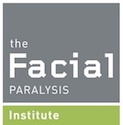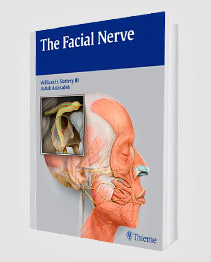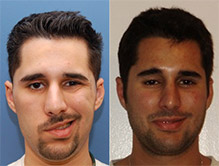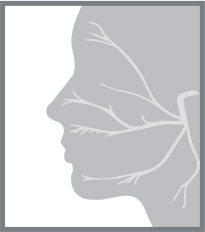Bell’s palsy is a medical condition that causes paralysis or weakness on one side of the face. It is the most common form of facial paralysis during pregnancy.
Getting Bell’s palsy while pregnant can be stressful. Bell’s palsy can affect a pregnant woman and her unborn child and must be treated properly. Fortunately, treatment options are available to address Bell’s palsy symptoms that occur during pregnancy.
Globally recognized facial plastic and reconstructive surgeon Dr. Babak Azizzadeh of The Facial Paralysis Institute in Beverly Hills understands the dangers associated with facial nerve palsy and pregnancy. He offers insights what happens if a patient gets Bell’s palsy while pregnant. In addition, Dr. Azizzadeh can help pregnant women and others address their Bell’s palsy symptoms in their early stages.
Is Bell’s Palsy During Pregnancy Common?
Pregnant women are susceptible to Bell’s palsy and other forms of facial paralysis. In some studies, researchers have found that pregnant women are two to four times more likely than men of the same age to experience Bell’s palsy. Several studies indicate that pregnant women are 3.3 times more likely than non-pregnant women to experience Bell’s palsy. Also, the aforementioned studies have shown that women are prone to Bell’s palsy in the third trimester of pregnancy.
Why Does Bell’s Palsy Occur During Pregnancy?
The exact cause of Bell’s palsy in pregnant women is unknown. Bell’s palsy during pregnancy has been linked to preeclampsia, also referred to as pregnancy-induced high blood pressure. It has also been associated with hemolysis, elevated liver enzymes, and low platelets (HELLP) syndrome, which is a variant of preeclampsia.
What Are the Symptoms of Bell’s Palsy During Pregnancy?
A one-sided facial droop is the most common symptom of Bell’s palsy during pregnancy. It can occur on its own or in conjunction with other symptoms, including:
- Watery eye on the paralyzed side of the face
- Difficulty smiling and/or making other facial expressions
- Trouble raising the eyebrow and/or blinking and closing the eye
- Changes in facial appearance and/or speech
- Loss of feeling in the face
- Headache
- Ringing in the ear
- Drooling
- Hypersensitivity to sound
- Loss of sense of taste
Bell’s palsy symptoms during pregnancy can occur without notice and tend to get worse within 48 hours of onset. They may be confused with those of a stroke.
Pregnant women who identify any symptoms of Bell’s palsy should immediately consult with a doctor. At this point, tests can be performed to help identify the root cause of these symptoms and determine if a patient is dealing with Bell’s palsy.
What Types of Bell’s Palsy Testing Are Available?
As part of a Bell’s palsy diagnosis, a doctor can perform one or more of the following tests:
- Ear, Nose and Throat Evaluation: Enables a doctor to identify a head or neck tumor or malignancy or inner ear infection.
- Neurologic Assessment: Provides insights into a patient’s movement, reflexes, cranial nerves and level of consciousness.
- Hearing Test: Helps a doctor determine if a patient has experienced hearing damage or inner ear problems.
- Vestibular Test: Allows a doctor to find out if a patient’s nerve balance is intact.
- Tearing Test: Offers insights into a patient’s ability to produce tears.
- CT Scan: Produces an image of a patient’s neck and temporal bone to help a doctor determine if tumors or trauma are present.
- MRI: Generates an image of a patient’s internal auditory canal and brain and allows a doctor to determine if an acoustic neuroma or other tumors are present.
- Electrophysiologic Test: Involves the study of electrical flow to a patient’s heart.
A doctor only recommends Bell’s palsy tests for a pregnant woman if they are believed to be safe for both the mother-to-be and her unborn baby. Once Bell’s palsy testing is performed, a doctor can then provide the patient with a personalized treatment recommendation.
How Is Bell’s Palsy Treated?
A doctor may take a wait-and-see approach to Bell’s palsy during pregnancy. This allows a doctor to monitor a patient’s symptoms to see if they disappear on their own over the course of their pregnancy.
Comparatively, a doctor may recommend the use of high-dose steroids and antiviral medications to reduce Bell’s palsy symptoms in pregnant women. Some doctors won’t recommend steroids or antivirals during the first trimester. Others may recommend steroids or antivirals at any point during a pregnancy.
Physical therapy can also be used to treat patients who experience Bell’s palsy while pregnant. It does not require any medication and can be continued after a patient gives birth.
Bell’s palsy can affect pregnant women in different ways. As such, each treatment must be tailored to the patient.
The ideal treatment for Bell’s palsy in pregnant women varies based on the patient. A full assessment is required to determine which option can deliver the best results. Regardless of treatment, some research indicates that the majority of pregnant women who develop Bell’s palsy achieve “satisfactory” recovery.
Will Bell’s Palsy Symptoms Disappear on Their Own During Pregnancy?
During pregnancy, the symptoms of Bell’s palsy likely will disappear on their own. Approximately 80% of all Bell’s palsy patients fully recover from their symptoms. For pregnant women dealing with Bell’s palsy, 52% fully recover from their symptoms.
What Happens If Bell’s Palsy Symptoms Persist After a Pregnancy?
Bell’s palsy symptoms can persist, even after a woman gives birth. Additional treatment options are available to women who experience Bell’s palsy symptoms following delivery.
Selective neurolysis is a revolutionary Bell’s palsy surgery developed by Harvard-trained and dual-board certified facial plastic and reconstructive surgeon Dr. Azizzadeh. During a selective neurolysis procedure, Dr. Azizzadeh maps out a patient’s facial nerves via intraoperative electromyography, then reduces activity of the facial nerves that otherwise hamper the smile mechanism. Finally, Dr. Azizzadeh releases the platysma muscle in the patient’s mouth, which enables this patient to naturally smile, frown, and make other facial expressions.
Along with selective neurolysis, a “supercharging” procedure is available to help patients coping with Bell’s palsy. This procedure simultaneously helps a patient strengthen weak smile muscles and maintain their basic function.
Botox for Bell’s palsy is also available, and it offers a nonsurgical alternative to help patients address facial paralysis. Botox injections help relax hyperactive muscles in the face, as well as improve facial symmetry and enhance the facial appearance.
Meanwhile, patients sometimes undergo a parotidectomy to treat the parotid gland, which provides a critical pathway to the facial nerve. If the facial nerve is damaged during a parotidectomy, a patient is susceptible to facial palsy, especially if facial nerve recovery after parotidectomy goes unaddressed. Or, if a patient works with a doctor who explains what to expect after a parotidectomy, he or she can take the necessary steps to minimize the risk of facial palsy after surgery.
Should You Pursue Bell’s Palsy Treatment During a Pregnancy?
Pregnancy increases the risk of Bell’s palsy, and a pregnant woman who displays any symptoms of facial paralysis should seek out treatment immediately. The longer Bell’s palsy symptoms go undiagnosed and untreated, the more likely it becomes that a pregnant woman could experience long-lasting facial paralysis. Thankfully, with support from a doctor, a pregnant woman can take the first steps to correct facial paralysis symptoms before they get out of hand.
At the Facial Paralysis Institute, Dr. Azizzadeh assists patients who experience Bell’s palsy symptoms that linger for eight months or longer after initial diagnosis. If a Bell’s palsy patient continues to experience facial paralysis symptoms despite using medication or other treatments to correct these symptoms, Dr. Azizzadeh is available to help. To learn more or schedule a Bell’s palsy treatment consultation with Dr. Azizzadeh, please contact us online or call us today at (310) 657-2203.
Request your consultation with Dr. Azizzadeh today
Call us at (310) 657-2203 to schedule an appointment.
Schedule a Consultation




